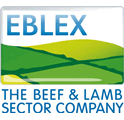| 23/11/07
Latest official slaughter figures from Defra and feedback from abattoirs
across the country indicate the backlog of prime cattle resulting
from FMD movement restrictions has been considerably less and has
cleared the market very much more rapidly than originally feared,
reports the English Beef and Lamb Executive (EBLEX).
Not surprisingly, UK slaughterings in August and September were disrupted
by FMD restrictions and were down by some 4% on the same period last
year. While throughputs recovered markedly in October with the easing
of restrictions, they were almost identical to 2006, suggesting that
any extra prime stock in the pipeline merely served to offset the
year-on-year structural decline in cattle numbers.
What is more, processors indicate a good balance of supply and demand
continuing through November. This is reflected in the continuing
stability of prime cattle prices over the early winter months, finished
R4L steer averages climbing steadily from just over 210 p/kg in late-August
to 216 p/kg deadweight or so in mid-November, leaving them virtually
identical to the same time last year.
The fact that October traditionally sees the peak of prime cattle
supplies while demand generally strengthens in the run-up to the
Christmas holiday gives considerable cause for optimism as far as
the immediate market outlook is concerned. Especially so since domestic
consumption is continuing to grow and appears to have been unaffected
by the autumn disease worries.
This is reinforced by British Cattle Movement Service information
indicating a continued annual decline in the number of beef animals
being reared and, more recently also, in the average age of stock
at slaughter.
Overall, BCMS calf registrations suggest prime beef numbers in 2007
are likely to be some 1-2% down on 2006. At the same time, the reduction
in average age at slaughter – possibly resulting from earlier
selling in the face of worries over winter feed supplies and costs – could
further reduce beef supplies through lower than normal carcase weights.
The successful resumption of exports over the past few weeks has
further added to positive beef marketing sentiment, underlining the
stability of the current market outlook.
Even so, the sheer scale of this winter’s feed price rises
means margins are almost certain to be badly squeezed for many unless
prices strengthen appreciably in the coming few months.
However, the lamb market continues to suffer from that fact that
FMD and Blue Tongue movement restrictions hit at the worst possible
time for lamb marketing, although the recent resumption of meat exports
is starting to help the situation.
 Pioneer Gold for Quality Beef and Lamb Pioneer Gold for Quality Beef and Lamb
 Brisk Trade for Best of Blacks in the Borders Brisk Trade for Best of Blacks in the Borders
 Breed
Data Highlights National Herd Changes Breed
Data Highlights National Herd Changes
| 


